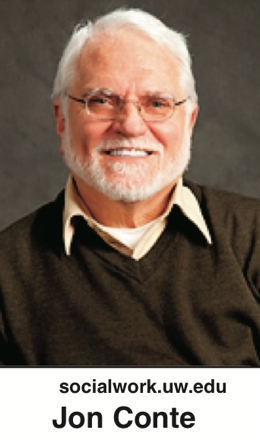Rascals case in brief
In the beginning, in 1989, more than 90 children at the Little Rascals Day Care Center in Edenton, North Carolina, accused a total of 20 adults with 429 instances of sexual abuse over a three-year period. It may have all begun with one parent’s complaint about punishment given her child.
Among the alleged perpetrators: the sheriff and mayor. But prosecutors would charge only Robin Byrum, Darlene Harris, Elizabeth “Betsy” Kelly, Robert “Bob” Kelly, Willard Scott Privott, Shelley Stone and Dawn Wilson – the Edenton 7.
Along with sodomy and beatings, allegations included a baby killed with a handgun, a child being hung upside down from a tree and being set on fire and countless other fantastic incidents involving spaceships, hot air balloons, pirate ships and trained sharks.
By the time prosecutors dropped the last charges in 1997, Little Rascals had become North Carolina’s longest and most costly criminal trial. Prosecutors kept defendants jailed in hopes at least one would turn against their supposed co-conspirators. Remarkably, none did. Another shameful record: Five defendants had to wait longer to face their accusers in court than anyone else in North Carolina history.
Between 1991 and 1997, Ofra Bikel produced three extraordinary episodes on the Little Rascals case for the PBS series “Frontline.” Although “Innocence Lost” did not deter prosecutors, it exposed their tactics and fostered nationwide skepticism and dismay.
With each passing year, the absurdity of the Little Rascals charges has become more obvious. But no admission of error has ever come from prosecutors, police, interviewers or parents. This site is devoted to the issues raised by this case.
On Facebook
Click for earlier Facebook posts archived on this site
Click to go to
Today’s random selection from the Little Rascals Day Care archives….
Click for earlier Facebook posts archived on this site
Click to go to
Today’s random selection from the Little Rascals Day Care archives….
The truth about justice – as seen on TV!

dukemagazine.duke.edu
Lisa Kern Griffin
Jan. 29, 2016
“The release last month of ‘Making a Murderer’ capped a year in which popular culture’s portrayal of the criminal justice system seems to have shifted. Out with the old tropes about truth-seeking investigators and tidy resolutions; in with the disquieting, dysfunctional reality of many courtrooms and police stations….
“Yes, post-conviction DNA testing and the work of Innocence Projects around the country have exonerated more than 1,700 defendants. Those cases heighten awareness of potential errors and demonstrate that wrongful convictions happen. But Americans shouldn’t expect certainty about innocence. Sometimes the focus on finding new evidence to exonerate distracts from the question of whether the old evidence proved guilt….
“Fewer than 70,000 federal felonies are prosecuted each year, while roughly 2.5 million felonies proceed through the state courts. Many state cases involve near-simultaneous investigation and prosecution. One rarely finds out ‘what really happened.’
“The prosecutor in Avery’s trial argued in his closing statement that ‘reasonable doubts are for innocent people.’ They are not. And procedural protections like access to defense counsel and freedom from coerced interrogations extend to both the innocent and the guilty. The real contribution of these documentaries is not to ask ‘whodunit’ but to reveal what was done to defendants….
“The United States criminal justice system needs fewer guilt-assuming interrogation tactics, more disclosure of potentially exculpatory information to the defense, expanded oversight units within prosecutors’ offices to investigate potential miscarriages of justice and fuller appellate scrutiny of convictions.
“The moment is ripe for reform, culturally and politically….”
– From by “ ‘Making a Murderer’ Is About Justice, Not Truth” by Lisa Kern Griffin, Duke Law professor and former federal prosecutor, in the New York Times (Jan. 12)
Will this heightened skepticism about the nation’s justice system ever trickle down to exonerate the Edenton Seven and free Junior Chandler?
![]()
What? A journal willing to retract?
 March 6, 2014
March 6, 2014
First of three posts
Psychiatric Times isn’t the only professional journal to avoid reexamining the “satanic ritual abuse” era.
Other examples include Nursing Research, Child Abuse & Neglect and Relational Child and Youth Care Practice. The editors of each of these journals turned down my requests to retract their articles supporting and promoting the SRA moral panic.
One editor did offer a glimmer of willingness: Jon Conte at the Journal of Interpersonal Violence.
The road to publication, however, has proved long and bumpy and ultimately – spoiler alert – a dead end.
Here are excerpts from my correspondence with Dr. Conte, who is a professor in the School of Social Work, University of Washington:
Powell (Oct. 30, 2012):
Hello Dr. Conte….
I am an independent researcher and blogger in Charlotte, North Carolina. My goal is to obtain a statement of innocence for the Edenton Seven, the wrongfully prosecuted defendants in the Little Rascals Day Care case (1989-1997).
In December 1989 the Journal of Interpersonal Violence published the article “Stress Responses of Children to Sexual Abuse and Ritualistic Abuse in Day Care Centers” by Susan J. Kelley.
In December 1990 the Journal published the article “Ritualistic Child Abuse in a Neighborhood Setting” by Barbara Snow and Teena Sorensen.
Can you tell me whether the Journal ever published a retraction for these articles? And if not, would it consider doing so now?
Conte (Oct. 30, 2012):
I do not believe JIV (ever) published a Comment on this 1989 manuscript. I would not prejudge any submission so long
as it is consistent with the overall mission and focus of the journal. A comment on a previous article, even years after publication would certainly be reviewed. Any submission must be scholarly and consistent with the purpose of knowledge development or dissemination. Your use of the term “recantation” (actually, “retraction”) would appear to suggest an advocacy purpose and that purpose alone would not be appropriate for a manuscript we would review.
Powell (Nov. 12, 2012):
I apologize for not having been clearer in my request.
What I am seeking is not a recantation but a simple, concise retraction by the editors, acknowledging that the concept accepted and promoted in these two articles – ritual abuse in day cares – was in fact entirely a product of a moral panic.
I am not an academic or professional, but I believe an examination of the literature in the intervening years would fully support such a retraction.
This passage is from the Retraction Guidelines of the Committee on Publication Ethics: “Retraction is a mechanism for correcting the literature and alerting readers to publications that contain such seriously flawed or erroneous data that their findings and conclusions cannot be relied upon. Unreliable data may result from honest error or from research misconduct.”
Does the Journal of Interpersonal Violence want to leave these articles as its last word on the era of unfounded claims of ritual abuse in day cares?
Conte (Nov. 13, 2012):
As I said before we would accept a letter to the Editor or longer manuscript. The letter would not be peer reviewed.
The longer manuscript would be.
Science and knowledge progress slowly. There are many things which are published in good faith, blindly reviewed, and found acceptable for publication. Then some years later with more research, experience, or knowledge what was once acceptable is seen in a new light. I am not saying this has taken place with the manuscript you have identified. It is not my intent to review previously published work in light of the change in times.
If you wish to write a letter for publication I am happy to work with you in that effort.
Powell (Nov. 13, 2012):
I appreciate your thoughtful response. As much I would prefer a retraction – professionally researched and peer-reviewed – I appreciate your offer to consider a letter to the editor. Here is what I’d like to say:
“In December 1989 the Journal of Interpersonal Violence published ‘Stress Responses of Children to Sexual Abuse and
Ritualistic Abuse in Day Care Centers’ by Susan J. Kelley.
“In December 1990 it published ‘Ritualistic Child Abuse in a Neighborhood Setting’ by Barbara Snow and Teena
Sorensen.
“Both these articles endorsed and promoted a concept – satanic (or sadistic) ritual abuse in day cares – that subsequent research has proven to be entirely false. Today no respected social scientist will argue otherwise.
“The Little Rascals and McMartin cases were but two manifestations of this moral panic of the 1980s and early 1990s. Less publicized prosecutions occurred across North America and as far away as New Zealand and Germany.
“Untold harm was done to defendants, families and child-witnesses.
“The Journal of Interpersonal Violence should not allow these articles to stand as its last word on claims of day-care ritual abuse.”
Conte (Jan. 18, 2013):
I would suggest you consider several additional points: 1) you cite research which proves ritual abuse “false.” I don’t think you need to do a comprehensive research review, but since JIV is a scholarly journal, you should cite some of the research you are referring to. I am not sure that this research “proves” that RA does not exist but rather raises questions.
You might also make reference (if true) that no law enforcement investigation has every uncovered evidence that such “cults” exist. You also need to specify the harm that you feel these articles did. For example, does the term RA in the title imply belief that RA exists? I don’t think you have to prove some harm, but be specific in what you believe the harm is.
Also, and perhaps more importantly, if there are issues within the articles (i.e., not just the title) then describe what you see as the conceptual, methodological, etc., problems.
We are probably going to invite the authors to respond, and if they choose to do so I will share their responses
before we publish your letter or their responses.
Powell (Jan. 25, 2013):
I appreciate your guidelines and hope to produce something that is not only publishable but also contributes to discussion of this issue.
Conte (Sept. 4, 2013):
I am happy to work with you….
Next: My second attempt to make my case in the Journal of Interpersonal Violence.
R.I.P., Alexander Cockburn, ritual-abuse skeptic
 July 30, 2012
July 30, 2012
Death noted: Radical-left polemicist Alexander Cockburn, who as early as 1990 was raging against claims of satanic ritual abuse.
Cockburn gave particular attention to feminism’s role in the mania:
“In the coalition powering the satanic abuse persecutions,” he recalled in a 1999 column in The Nation, “feminists constituted a powerful component, most conspicuously in the form of Gloria Steinem and Ms. magazine.
“How did feminism, a movement that grew out of the radical passions of the 1960s, navigate itself into this demonic alliance? Charges of perverse abuse of children seemed an inviting line of attack in the larger onslaught on patriarchy, sexual violence and harassment. Social workers and therapists – many of them feminists – became the investigators and effective prosecutors.”
Cockburn oversimplified, as was his way, but it’s no stretch to see how feminism fed into not only ritual abuse, but also the sister hoaxes of recovered memory syndrome and multiple personality disorder.
Chapel Hill therapist was nothing if not certain
Nov. 2, 2011
Post on hidden mysteries.org (1995):
“Aside from the children and their parents, others are deeply disappointed by the N.C. Supreme Court’s decision not to (overturn) the reversals by the Court of Appeals.
“Superior Court Judge Marsh McLelland, who heard the Little Rascals case the first time, wrote in a letter to the Chief Justice of the Supreme Court: ‘Your refusal to review the Kelly and Wilson reversals by the Court of Appeals is legally and morally reprehensible.’
“Once more, the Edenton children find themselves as much on trial as their alleged perpetrators, if not more so.”
ANN EARLE
Letter to the editor of the News & Observer of Raleigh (May 16, 1996):
“As a psychotherapist who treats many child victims and adult survivors of sexual and ritual abuse… I am incredulous that so many people support Robert F. Kelly….
“There is ample historical and anthropological evidence that ritual abuse has existed for centuries…. Unfortunately, day care centers are optimal settings for such perpetrators.
“If there is indeed a ‘witch hunt’ going on, it’s actually aimed at abused children and those who advocate for them.”
ANN EARLE, C.C.S.W., B.C.D.
Chapel Hill
Letter to the editor of the News & Observer of Raleigh (June 4, 1997):
“Investigators should not ask leading questions, of course, but even if they did it is difficult to imagine how a young child could come up with graphic details of sexual activity if nothing happened. Child sexual abusers and pornographers routinely incorporate fantasy to entice children to cooperate and render them less believable if the child ever tells.
“Why are journalists so quick to believe alleged abusers and discount sexual abuse allegations by children?”
ANN S. EARLE
Chapel Hill
Letter to the editor of the News & Observer of Raleigh (January 15, 1999):
“In reality, false allegations of sexual abuse by preschool children are rare.
“I have spent three years researching and editing a book on ritual abuse allegations. Ample evidence supports the existence of such abuse in day care centers, in spite of how bizarre it may sound.
“Robert Kelly was found guilty by a jury of his peers in a lengthy trial. This verdict was overturned only on a technicality.
“Finally, there is obviously significant evidence to charge Kelly in a case unrelated to Little Rascals (charges dropped eight months later). We should consider these facts before concluding that the alleged abuses at Little Rascals were due to a ‘hysteria’ fueled by a ‘rumor mill.’ ”
ANN EARLE, C.C.S.W., B.C.D.
Chapel Hill
As these comments suggest, certainty in the pervasiveness of ritual abuse extended well beyond those therapists directly involved in the Little Rascals case.
Did Ann Earle, a board member of the International Council on Cultism and Ritual Trauma, ever change her mind? If so, she seems not to have shared the news.











0 CommentsComment on Facebook